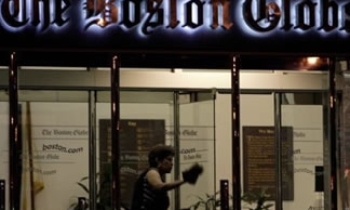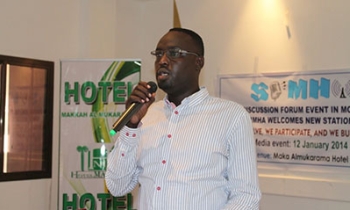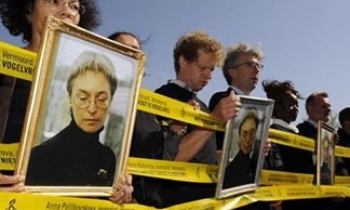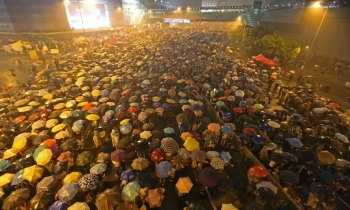Judith Miller, the New York Times reporter jailed since July 6 for refusing to testify in the CIA leak case, was released from a Virginia detention centre on Thursday after she and her lawyers reached an agreement with a federal prosecutor to testify before a grand jury investigating the matter.

Miller was freed after spending more than 12 weeks in jail, during which she refused to cooperate with the inquiry. Her decision to testify came after she obtained what she described as a waiver offered "voluntarily and personally" by a source who said she was no longer bound by any pledge of confidentiality she made to him.
She said the source had made clear that he genuinely wanted her to testify. That source was I Lewis "Scooter" Libby, vice-president Dick Cheney's chief of staff, the New York Times reported.
Miller's testimony was sought as part of a nearly two-year probe into whether the White House played a role in leaking the name of a CIA officer, Valerie Plame, to journalists, and violated a federal law that makes it a crime to identify covert agents.
Plame is married to former envoy Joseph C Wilson IV, who wrote an op-ed article for the New York Times criticising the administration's use of intelligence in justifying the war with Iraq. On July 14, 2003, eight days after that article was published, Robert Novak identified Plame by name and occupation in a syndicated column that attacked Wilson.

Karl Rove, President Bush's senior political strategist, and Libby both discussed Plame with reporters, according to testimony provided by Matthew Cooper, a Time magazine reporter, and by others. But Rove is not known to have mentioned Plame by name or to have mentioned her covert status at the CIA.
In July, when Chief U.S. District Judge Thomas Hogan ordered Miller to jail, he told her she was mistaken in her belief that she was defending a free press, stressing that the government source she "alleges she is protecting" had already released her from her promise of confidentiality.
Her incarceration, among the longest any journalist has undergone for protecting a confidential source, sparked an outcry from media groups and renewed interest in the Congress concerning federal legislations to prevent journalists from going to jail for protecting sources who provide information about official misconduct.
What made Miller's case particularly unusual was that, unlike other journalists called to testify, she never wrote an article about Plame and Wilson. Miller had refused to testify about conversations she had with an administration figure in the eight days between the time Wilson's article was published and Plame was identified in Novak's column.

"The agreement that led to Miller's release followed negotiations between Miller; her lawyer, Robert Bennett; Libby's lawyer, Joseph Tate; and Patrick J Fitzgerald, the prosecutor. Libby and his lawyer, however, both said that they gave their voluntary waiver to Miller's lawyers more than year ago. In fact, Libby wrote to Miller in mid September, saying he believed her lawyers understood that his waiver was voluntary. Miller contended she was not sure the waiver had been freely given and did not accept it until she had heard from him directly.
Bill Keller, executive editor of the New York Times, said Fitzgerald had assured Miller's lawyer that "he intended to limit his grand jury interrogation so that it would not implicate other sources of hers." He said Fitzgerald cleared the way to an agreement by assuring Miller and her source that he would not regard a conversation between the two about a possible waiver as an obstruction of justice.
It's good to be free," Miller said in a statement Thursday night. "I went to jail to preserve the time-honoured principle that a journalist must respect a promise not to reveal the identity of a confidential source. ... I am leaving jail today because my source has now voluntarily and personally released me from my promise of confidentiality regarding our conversations relating to the Wilson-Plame matter.

"My attorneys have also reached agreement with the Office of Special Counsel regarding the nature and scope of my testimony, which satisfied my obligation as a reporter to keep faith with my sources," she said.
The New York Times' publisher, Arthur O. Sulzberger Jr, said in a statement that the newspaper supported Miller's decision to testify, just as it had backed her earlier refusal to cooperate. "Judy has been unwavering in her commitment to protect the confidentiality of her source. We are very pleased that she has finally received a direct and uncoerced waiver, both by phone and in writing, releasing her from any claim of confidentiality and enabling her to testify," Sulzberger said.









